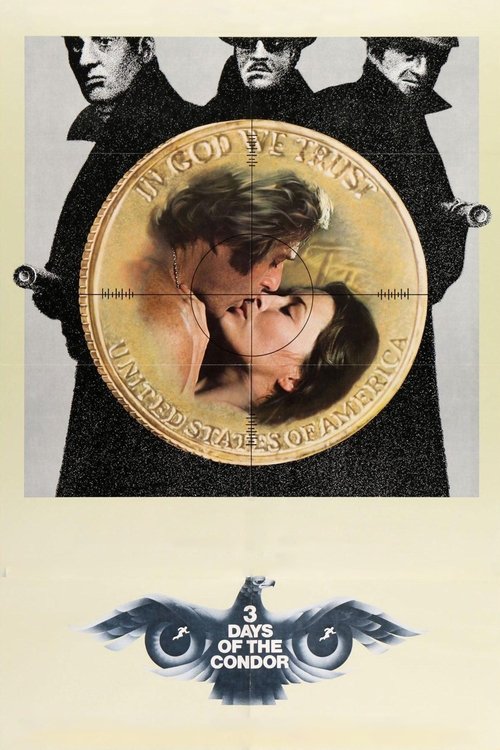
Title: Three Days of the Condor
Year: 1975
Director: Sydney Pollack
Writer: Lorenzo Semple Jr.
Cast: Robert Redford (Joseph Turner), Faye Dunaway (Kathy Hale), Cliff Robertson (J. Higgins), Max von Sydow (G. Joubert), John Houseman (Mr. Wabash),
Runtime: 117 min.
Synopsis: When bookish CIA researcher Joe Turner finds all his co-workers dead, he, together with a woman he has kidnapped, must work together to outwit those responsible until he determines who he can really trust.
Rating: 7.278/10